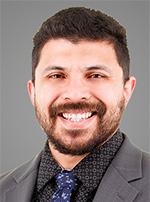




Cynthia O’Neill Partner Emeritus | San Francisco
Ronni Cuccia Associate


A police officer filed a lawsuit against the city and its police department regarding three incidents. In one incident, the officer told dispatch he was cancelling a vehicle pursuit, but continued the high-speed pursuit without lights and siren. The department investigated, and ultimately issued the officer a non-disciplinary educational reminder.
In the second incident, the officer encountered a jaywalker while the officer was outside the city. The officer allegedly saw the jaywalker put his hand in his waist band and take off running. The officer and his partner gave chase on foot and apprehended the jaywalker by force. The officer did not inform dispatch of their location, or the fact they had pursued the suspect, until after the officer and his partner had apprehended the jaywalker. After an investigation, the officer was issued a written reprimand. The officer initiated, and then abandoned an appeal of the written reprimand.
In the third incident, the police officer was a passenger in a vehicle pursuit that ended in a pursuit intervention. The officer claimed his role in the pursuit was investigated because he had earlier appealed the written reprimand and had attempted to appeal the educational reminder.
The officer then sued, alleging multiple violations of the Peace Officers’ Procedural Bill of Rights (POBR) and
whistleblower retaliation (Labor Code section 1102.5).
The city and police department moved for summary judgment on the grounds that the officer had offered no triable facts to support his claims.
As to the POBR claims, James and Nicholas highlighted that there were no violations as to the manner that the incidents were investigated. The city provided the officer with the required protections during the investigations, by informing him of his rights and the nature of the investigations, and providing him the required documents. The police officer was also provided the opportunity for an appeal hearing on the written reprimand, but he did not take that opportunity.
On the officer’s whistleblower claim, the judge agreed with James and Nicholas that the officer’s internal grievances did not rise to the level of whistleblower retaliation. In addition, the judge found that the officer could not establish that he was subjected to any adverse employment action as was required to support his whistleblower claim.
The California Superior Court, County of Los Angeles granted the city’s and its police department’s motion for summary judgment.
Two district attorney investigators were promoted and received a five percent raise. The investigators submitted grievances alleging that their title changes were reclassifications rather than promotions. They claimed that they were entitled to a ten percent salary increase under their MOU.
The county denied the grievances and the police officers’ association filed a petition to compel arbitration under the MOU. Che and Louis successfully argued that the arbitration clause the association cited was inapplicable because the MOU did not speak to reclassification procedures. The reclassification procedures were only found in the county’s personnel rules, which had no arbitration provision. The judge denied the petition to compel arbitration.
Harbor Patrol Officer John Lowry was injured while on duty for the Port San Luis Harbor District. Lowry’s doctor said he was not fit to return to work and should be medically retired. Lowry stopped working when he received a letter from the District’s workers’ compensation insurer that said Lowry’s industrial injury had resulted in permanent disability and the District was unable to offer him work within his permanent limitations/restrictions.
Lowry applied for a CalPERS disability retirement. The District decided it lacked sufficient information to make a determination of disability. CalPERS notified Lowry that his application for disability retirement was denied. The District eventually terminated Lowry on the basis that he “voluntarily resigned” by accepting other employment. The District later admitted that Lowry did not voluntarily resign.
Lowry sued the District, and ultimately dropped all but one cause of action for disability discrimination in violation of the Fair Employment and Housing Act (FEHA). Lowry claimed the District discriminated by denying him a disability retirement, which he alleged was a term, condition, or privilege of employment.
The District moved for summary judgment. There was no dispute that Lowry could not perform his essential job duties with or without accommodation. Thus, the District contended that Lowry was not a qualified individual with a disability, and not entitled to any FEHA remedy. The superior court granted the District’s motion for summary judgment, reasoning in part that: 1) disability retirement is not a term, condition, or privilege of employment under FEHA; and 2) Lowry could not pursue a disability retirement through FEHA.
Lowry appealed to the California Court of Appeal. During oral argument, Lowry conceded there was no evidence in the record that he could return to work at the District.
The Court of Appeal affirmed the trial court. First, the Court found that the denial of disability retirement payments was not an adverse employment action under FEHA. A disability retirement is a post-employment benefit; it therefore cannot adversely and materially affect an employee’s job performance or opportunity for advancement. The Court concluded that the failure to provide Lowry disability retirement benefits was not an adverse employment action under FEHA.
Second, the Court found that FEHA disability discrimination protections are limited to “qualified individuals”— meaning those who can perform their essential job duties with or without reasonable accommodation. Since Lowry conceded he could not do so, he could not defeat the District’s motion for summary judgement.
Lowry v. Port San Luis Harbor District, 2025 Cal.App.LEXIS 102, 2/26/25.
Haley Olson sued Oregon law enforcement officials. She alleged that the officials violated her Fourth Amendment rights by extracting the contents of her cell phone without a warrant.
Olson was arrested in Idaho for marijuana possession. She signed a form giving Idaho police consent to search her phone. They then created an “extraction,” or copy of the contents of her phone. During the search of her car, Idaho police found the business card of Tyler Smith, a Grant County, Oregon sheriff’s deputy.
Glenn Palmer, then-Sheriff of Grant County, Oregon, heard about the arrest. Out of “curiosity” as to Deputy Smith’s possible connection to criminal activity, Sheriff Palmer asked Jim Carpenter, then-Grant County’s Attorney and County Prosecutor, to request the phone extraction from Olson’s Idaho case.
Attorney and Prosecutor Carpenter reviewed the extraction for evidence of any criminal activity as to Deputy Smith. Finding nothing, he said he deleted his copy.
Olson heard gossip about the contents of her phone, including nude photos, that seemed to originate from the Grant County sheriff’s office. She sued Palmer and Carpenter, alleging a Fourth Amendment violation. The district court granted summary judgment for Palmer for lack of supervisory liability, and for Carpenter on grounds of qualified immunity because his actions did not violate clearly established law.
The Court of Appeals for the Ninth Circuit affirmed. The Court found no supervisor liability for Sheriff Palmer because there was no evidence that Palmer reviewed the phone extraction or had any supervisory authority over Carpenter. Third-parties may only be liable for the constitutional violations of others if they are a supervisor and they were personally involved in the constitutional deprivation. Thus, Palmer’s request that Carpenter procure and review Olson’s cell phone data failed to establish supervisory control.
The Court also agreed that Carpenter was entitled to qualified immunity because Olson’s right to be free from Carpenter’s search was not clearly established at the time. A government official violates clearly established law if at the time of the challenged conduct, a right was sufficiently clear that every reasonable official would have understood that what he is doing violates that right. Olson did not point to any cases that showed her rights were clearly established as to the unique issues at hand, including if a separate law enforcement unit’s review of a phone extraction constitutes a search. The Court affirmed the grant qualified immunity to Carpenter because Olson’s right to be free from Carpenter’s search was not clearly established at the time.
The Court also declared for future cases that the Oregon official’s search of the phone extraction infringed on Olson’s Fourth Amendment rights.
Haley Olson v. County of Grant, 2025 U.S.App. LEXIS 3005 (2/10/25).
On February 3, 2025, all but one subsection of Cal/OSHA’s COVID-19 response regulations, that were codified at Title 8 of the California Code of Regulations, expired.
The one subsection that remains in effect until February 3, 2026 is Subsection 3205(j) regarding Recordkeeping, which requires an employer to:
• “[K]eep a record of and track all COVID-19 cases” (emphasis added) with the employee's name, contact information, occupation, location where the employee worked, the date of the last day at the workplace, and the date of the positive COVID-19 test and/or COVID-19 diagnosis.
ƈ One reasonable interpretation of the requirement to “track” all COVID-19 cases as stated within this remaining recordkeeping regulation is that employers are only required to maintain a record of COVID cases they are made aware of as a result of volunteered or widely-known information, as opposed to the active tracking that was required under the now-expired provisions.
• These records must be preserved for two years “beyond the period in which the record is necessary to meet the requirements” of now-expired sections 3205 through 3205.3.
ƈ Thus, the retention period for a record starts from the last relevant date related to the record, such as the end of the employee’s infectious period or their return to work.
ƈ For example, an employee who tested positive for COVID on January 1, 2025, but who never developed symptoms, may return to work in 10 days on January 11, 2025, under now-expired regulation section 3205 (b)(9)(B). The employer must maintain that record until January 11, 2027.
• Provide information on COVID-19 cases to the local health department with jurisdiction over the workplace, CDPH, Cal/OSHA, and NIOSH immediately upon request, and when required by law.
The UCLA Lab School serves pre-kindergarten through sixth-grade students and employs Demonstration Teachers. The University Council-American Federation of Teachers (UC-AFT) represents these UCLA Lab School employees.
Demonstration Teachers’ job duties included, but were not limited to: creating lesson plans; providing instruction; assessing student performance; and mentoring other Demonstration Teachers, Teaching Assistants, and outside visiting teachers.
In 2022, the Lab School created a new classification, Teacher Apprentice, and implemented an apprenticeship program. Teacher Apprentices were unrepresented. Teacher Apprentices were assigned instructional and lessonplanning duties that had been performed exclusively by Demonstration Teachers. Also, the Lab School required Demonstration Teachers to mentor Teacher Apprentices, which was a new job duty.
The University did not notify UC-AFT before implementing the program. UC-AFT filed an unfair practice charge, alleging that the University violated the Higher Education Employer-Employee Relations Act (HEERA) by: 1) transferring bargaining unit work to non-unit employees; and 2) unilaterally adding a material new duty— mentoring Teacher Apprentices—to the Demonstration Teachers.
An administrative law judge (ALJ) found in favor of UC-AFT on both claims. The University appealed to PERB.
On appeal, PERB upheld the ALJ’s findings. PERB agreed that the University unlawfully transferred bargaining unit work by assigning lesson-planning and instructional duties to unrepresented Teacher Apprentices. PERB also held that assigning Demonstration Teachers to mentor the Teacher Apprentices was a material change to their job responsibilities. While Demonstration Teachers had occasional, ad hoc mentoring duties in the past, the new requirement imposed a structured, ongoing obligation that was not reasonably comprehended within their prior duties. Because the University unilaterally implemented this requirement without bargaining, it violated its duty to meet and confer in good faith.
As a remedy, PERB ordered the University to rescind the transfer of bargaining unit work and the unilateral addition of mentoring duties by the beginning of the next academic term.
University Council-American Federation of Teachers v. Regents of the University of California (Los Angeles) Case No. LA-CE1384-H; PERB Decision No. 2942-H; February 10, 2025.

Class & Comp: The Foundation of Informed Labor Negotiations
March 11, 2025
10:00 a.m. - 11:00 a.m.
What Labor Code Sections Apply to the Public Sector?
June 9, 2025
10:00 a.m. - 11:00 a.m.
2026 Public Agency Legislative Roundup
November 12, 2025
10:00 a.m. - 11:00 a.m.
Labor Relations Legislative Update: What Your Agency Needs to Know about New Legal Obligations for 2026
December 11, 2025
10:00 a.m. - 11:00 a.m.
Visit the above links for more information.




Hannah Casey is an Associate in the Los Angeles office of Liebert Cassidy Whitmore, where she supports clients with advice and counsel on education, labor, and employment law matters.
Jack Jackson is an Associate in the Fresno office of Liebert Cassidy Whitmore, where he provides legal counsel to public agencies on a wide range of municipal and employment law matters.
Nicole A. Powell is an Associate in the Los Angeles office of Liebert Cassidy Whitmore, where she provides advice and counsel on labor and employment law matters.

Liebert Cassidy Whitmore’s Labor Relations Practice Group offers an array of services to help your agency. These services include:
1. Being in the role of Chief Negotiator at your labor negotiations tables. Services include:
Interfacing with elected officials
Meeting with appropriate department representatives
Preparation of proposals and compensation surveys
Acting as the Chief spokesperson at the collective bargaining table
2. Trusted legal advisors on labor issues including:
Unfair practice charges
Job actions (including strike preparation)
Wage and hour
Retirement and leaves issues that are addressed in your Memoranda of Understanding (MOU) or Collective Bargaining Agreements (CBA)
Any legal issue under California collective bargaining laws applicable to the public sector
3. Reviewing and offering recommendations for your MOUs or CBAs in advance of an upcoming labor negotiation.
4. Handling Unfair Practice Charge filings at the Public Employment Relations Board, including any hearings that may be set.
5. Training your staff on how to be more successful on the numerous issues raised by your labor relationships. Review our trainings here: https://www.lcwlegal.com/labor-relations-certification-program/
If you have any question(s) about whether LCW can help you with your labor relations, please reach out to the Chair of LCW’s Labor Relations Practice Group, Peter Brown at pbrown@lcwlegal.com.
Members of Liebert Cassidy Whitmore’s employment relations consortiums may speak directly to an LCW attorney free of charge regarding questions that are not related to ongoing legal matters that LCW is handling for the agency, or that do not require in-depth research, document review, or written opinions. Consortium call questions run the gamut of topics, from leaves of absence to employment applications, disciplinary concerns and more. This feature describes an interesting consortium call and how the question was answered. We will protect the confidentiality of client communications with LCW attorneys by changing or omitting details.
We overpaid an employee, however, only by about 10 dollars total. Are we required to recoup the payment?
Public agencies are generally required to recoup overpayments as part of their obligation to protect public funds and failure to do so may constitute an impermissible gift of public funds.

To view these article and the most recent LCW attorney-authored articles, please visit: www.lcwlegal.com/ news
• Recently published in Bloomberg Law, LCW Partner Paul D. Knothe and Associate Nicholas M. Grether examine the Department of Homeland Security’s new playbook for implementing generative AI in public agencies. Knothe and Grether highlight DHS pilot programs that leveraged AI for law enforcement investigations, emergency management planning, and immigration officer training. They outline key recommendations, including strategic implementation, governance oversight, and risk mitigation to protect sensitive data and civil rights. Emphasizing a cautious and deliberate approach, the authors advise agencies to integrate AI into non-critical functions first, establish clear performance metrics, and provide thorough employee training to ensure responsible use.
To access the full article, please click the following link: https://news.bloomberglaw.com/us-law-week/ homeland-security-offers-agencies-a-playbook-for-generative-ai
Whether you are looking to impress your colleagues or just want to learn more about the law, LCW has your back! Use and share these fun legal facts about various topics in public safety.
• CalFire has established nighttime aerial firefighting operations, including the use of “S70i Fire Hawk” helicopters that can perform fire suppression drops and aerial supervision even after dark.
• The first paid fire department in California was established in San Francisco in 1866.
• In order to protect California’s giant sequoias when they are threatened by forest fires, fire fighters will wrap the base of the tree in a fire-resistant aluminum blanket.

By: Kelly Tuffo
Since the 2018 United States Supreme Court decision in Janus v. AFSCME prohibited public sector labor unions from charging agency fees to non-members, public sector labor unions have sought methods to incentivize union membership. For example, the state legislature recently amended the Meyers Milias Brown Act permitting labor unions who represent public safety officers to charge non-members for the cost of individual representation in a discipline, grievance, arbitration, or administrative hearing.
Another method for incentivizing union membership is to offer certain benefits only to union members, excluding non-members from coverage.
While permissible in certain circumstances, public agencies must be cautious when contributing to the cost of benefits exclusively for union members.
Benefits funded directly from the union’s resources (e.g., a union providing additional insurance, legal assistance, or exclusive benefits from its own funds or paid for by union dues) are generally allowed. Such benefits are voluntary, available through union
membership, but not funded by public money. However, if a government agency directly funds or administers benefits exclusively for union members while excluding non-members in the bargaining unit, this can lead to potential legal challenges. For example:
• Employer Interference: A public agency’s paying for a benefit that exclusively goes to union members, and not to non-members, could be considered employer interference under California labor laws. Under the Meyers Milias Brown Act, public agencies are prohibited from interfering with, restraining, or coercing employees in their right to join or not join a union. If a public employer funds a benefit that only union members receive, it could be held to interfere with employee choice by financially incentivizing union membership over non-membership.
• Union Failure of Duty of Fair Representation: Public-sector unions are required to represent all bargaining unit members fairly, in good faith, and without discrimination, regardless of union membership status. If an agency-funded benefit is
part of a collective bargaining agreement and applies only to union members, excluding non-members in the same bargaining unit, the union might be violating its duty of fair representation to non-members. In such instance, non-member employees could potentially file an unfair labor practice charge with PERB against the union for failure to fairly represent all employees.
• First Amendment Violation: As Janus v. AFSCME reinforces that public employees cannot be financially coerced into joining a union, exclusive benefits funded by public money could raise constitutional concerns.
• The Public Employment Relations Board (PERB) has adopted federal precedent as the public sector test for interference, acknowledging that the act of paying benefits to one group of employees and not another group of employees who are distinguishable only by their participation in concerted activity, can constitute interference. If an employer’s discriminatory conduct is facially or inherently discriminatory, no proof of antiunion motivation is needed and PERB can find an unfair labor practice, even if the employer introduces evidence that the conduct was motivated by business considerations. In those instances, the employer’s conduct will be excused only on proof that it was occasioned by circumstances beyond the employer’s control and that no alternative course of action was available.
On the other hand, if the adverse effect of the discriminatory conduct on employee rights is comparatively slight, the employer can produce evidence of legitimate and substantial business justifications in defense of the conduct, and the burden then shifts to the charging party (the union or an employee) to demonstrate that the employer had a motivation of interference.
Agencies that extend benefits exclusively to union members risk violating state labor law by effectively penalizing non-members and creating an unlawful incentive to join a union. Rather, any benefit funded by public funds should apply equally to all represented employees, regardless of membership status.
For public agencies, the lesson is clear: union membership should not be a prerequisite for workplace benefits. As a general rule, if the agency funds the benefit – even if it payments are made through the union to a third party – all employees represented by the bargaining unit (members and non-members) should be eligible. If the benefit is exclusive to union members, it should be funded by the union itself, not funded by public funds. Like the iconic Members Only jackets of the 1980s, these exclusive perks might seem appealing—but they can quickly go out of style in the eyes of the law.


